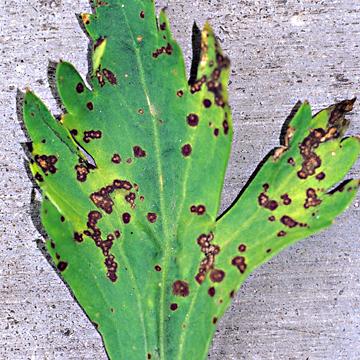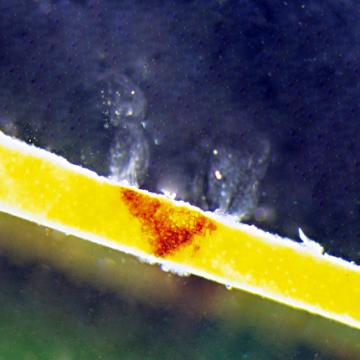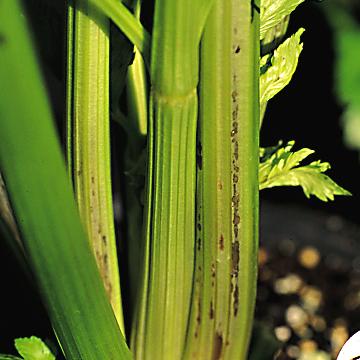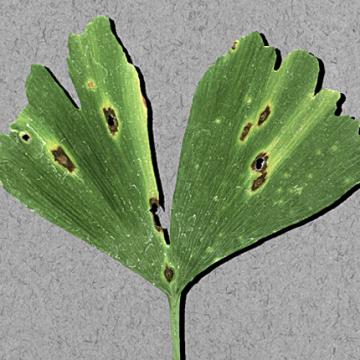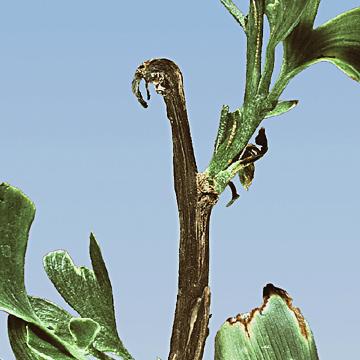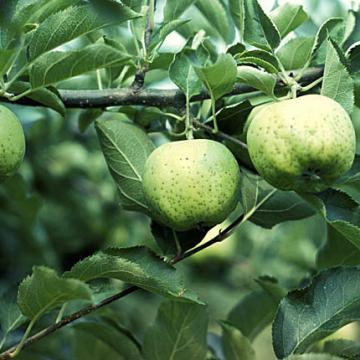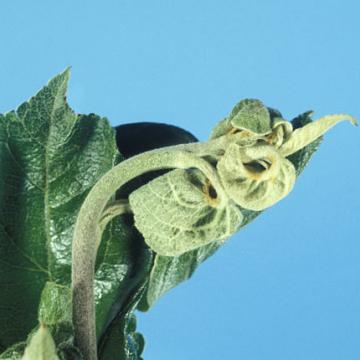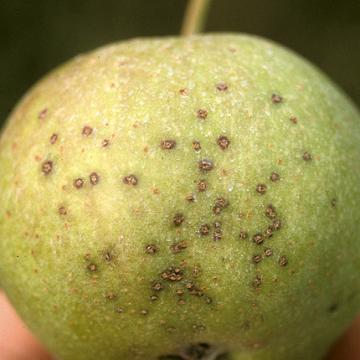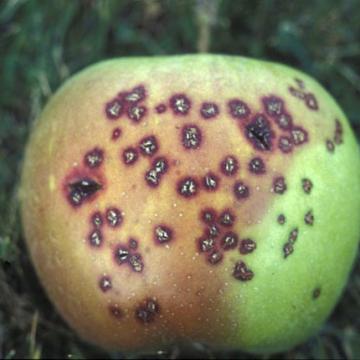DISEASE: Bacterial blight (Brown stem)
HOST: Celery
Lesions are necrotic and circular to angular. Some have yellowish halos. Older lesions become brown and dry.

Bacterial blight (Brown stem) | Celery
DISEASE: Bacterial blight (Brown stem)
HOST: Celery (Apium graveolens)
PATHOGEN: Pseudomonas cichorii
SOURCE: R. Raid
DISEASE: Bacterial blight (Brown stem)
HOST: Celery
Ooze from lesion on celery leaf.
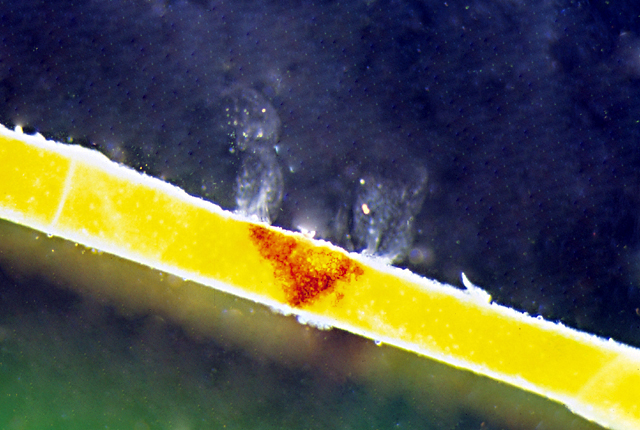
Bacterial blight (Brown stem) | Celery
DISEASE: Bacterial blight (Brown stem)
HOST: Celery (Apium graveolens)
PATHOGEN: Pseudomonas cichorii
SOURCE: R. Raid
DISEASE: Bacterial blight (Brown stem)
HOST: Celery
Characteristic brown discoloration of petioles, which is more evident on inside of petiole close to the crown. Parenchyma tissues are firm and brown.
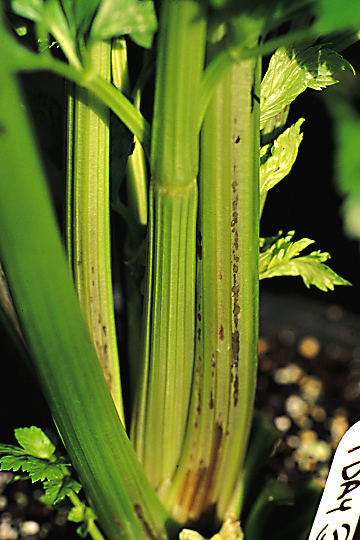
Bacterial blight (Brown stem) | Celery
DISEASE: Bacterial blight (Brown stem)
HOST: Celery (Apium graveolens)
PATHOGEN: Pseudomonas cichorii
SOURCE: K. Pernezny
DISEASE: Bacterial leaf spot (Canker)
HOST: Ginkgo
Ginkgo leaf with dark brown, elongated necrotic spots.
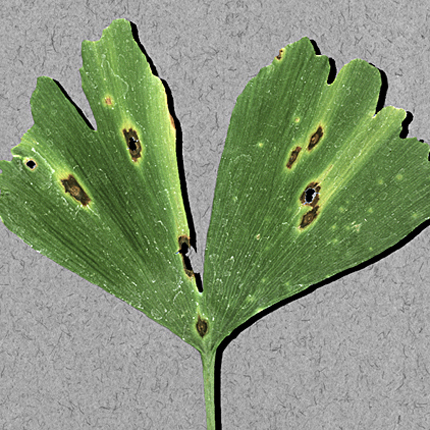
Bacterial leaf spot (Canker) | Ginkgo
DISEASE: Bacterial leaf spot (Canker)
HOST: Ginkgo (Ginkgo biloba)
PATHOGEN: Pseudomonas syringae pv. syringae
SOURCE: A. Bishop
DISEASE: Bacterial leaf spot (Canker)
HOST: Ginkgo
Ginkgo with leaf spots and canker on stem.
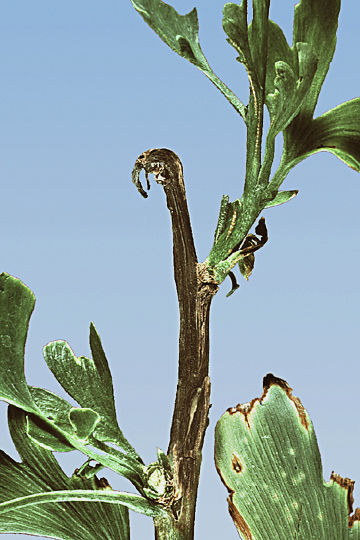
Bacterial leaf spot (Canker) | Ginkgo
DISEASE: Bacterial leaf spot (Canker)
HOST: Ginkgo (Ginkgo biloba)
PATHOGEN: Pseudomonas syringae pv. syringae
SOURCE: A. Bishop
DISEASE: Blister spot
HOST: Apple
Fruit with water-soaked spots.

Blister spot | Apple
DISEASE: Blister spot
HOST: Apple (Malus domestica)
PATHOGEN: Pseudomonas syringae pv. papulans
SOURCE: T. Burr
DISEASE: Blister spot
HOST: Apple
Water-soaked blister spots on leaves of blighted twig.

Blister spot | Apple
DISEASE: Blister spot
HOST: Apple (Malus domestica)
PATHOGEN: Pseudomonas syringae pv. papulans
SOURCE: T. Burr
DISEASE: Blister spot
HOST: Apple
Apple with brownish blister spots.

Blister spot | Apple
DISEASE: Blister spot
HOST: Apple (Malus domestica 'Mutsu')
PATHOGEN: Pseudomonas syringae pv. papulans
SOURCE: S. Thomson


